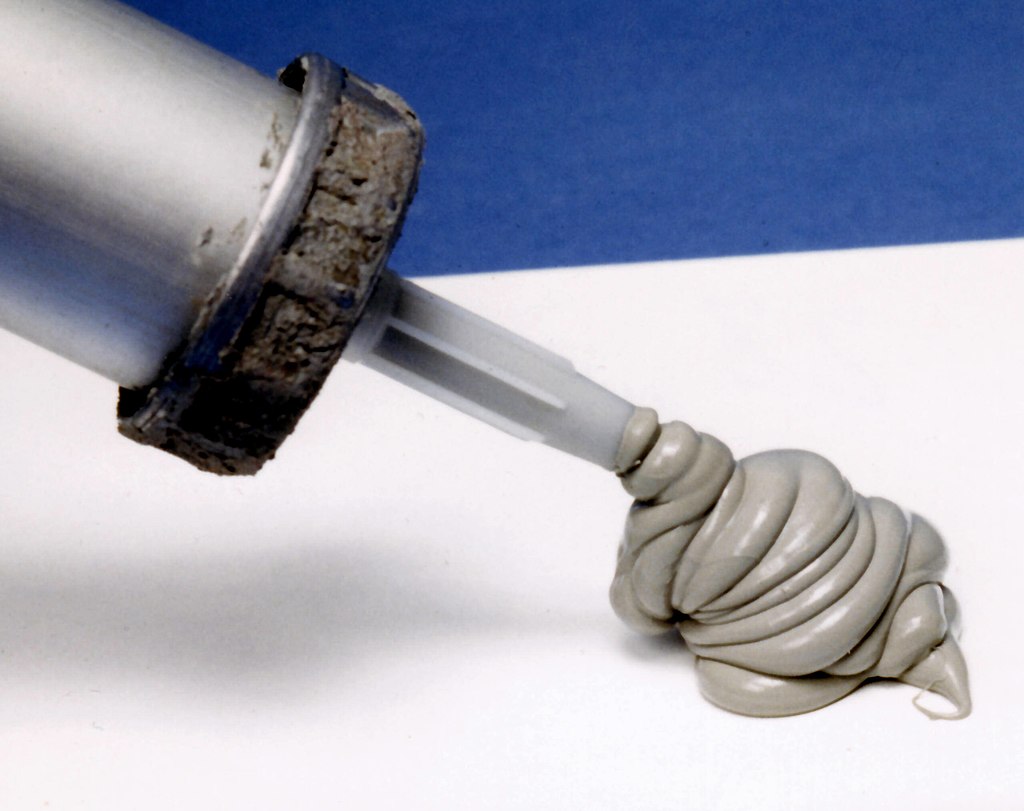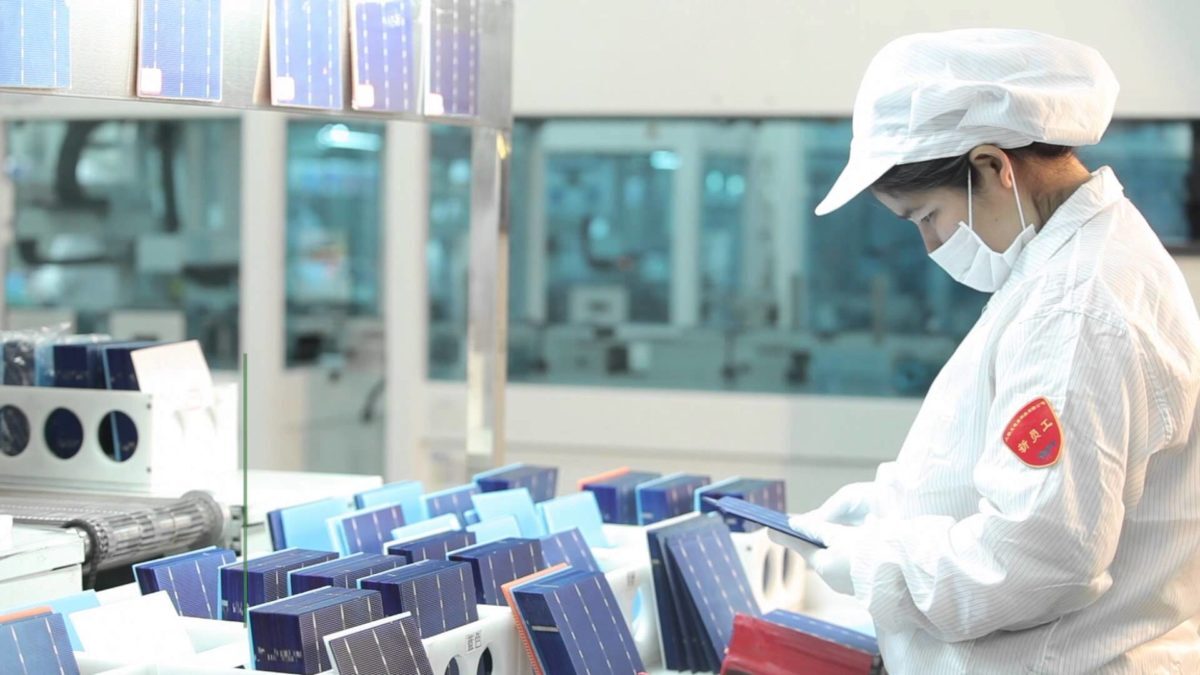An Austrian-Belgian research group has developed a flowable silicone sealant that can be used to create an insulating and protective layer on damaged solar module backsheets.
The scientists used a special sealant that is known as Dowsil 7094 Flowable Sealant and which is produced by U.S.-based silicone adhesives and sealants provider Dow Corning. This black sealant is usually utilized as a paste for solar panel frame sealing, but the research team decided to make it flowable and use it as a repair material. The latter is described as consisting of a mixture of calcium carbonate particles acting as a filler, and a polydimethylsiloxane (PDMS) polymer that cures the damaged backsheet upon exposure to ambient moisture.
“The moisture cure system results in an inward directed curing process starting from the surface in contact with air, with the cure rate slowing down as the barrier for moisture diffusion becomes wider,” the academics stated. “After cure, the material is a solid elastomer with a high elongation at break, which develops good adhesion to backsheet materials.”
Test on materials
The sealant was initially tested on four backsheet material types: one based on co-extruded polyamide; a product made of polyvinyl fluoride (PVF) and polyethylene terephthalate (PET); another one based on polyvinylidene fluoride (PVDF) and PET; and a primer-based product made with PET.
The sealant was applied onto the air side of 2.5cm wide and 10cm long rectangular strips cut out from the four backsheets. “Then, a second strip, air side down, was placed on top of the first one and pressed so that the silicone material between the two backsheet strips had a thickness of about 1mm,” the group further explained. “The excess silicone material was removed from the side, and the samples were left to cure at 23 degrees Celsius [and] 50% relative humidity for 28 days.” The cured samples were then put into a climate chamber at 85 degrees Celsius and 85% relative humidity for 1,000 hours.
The new solution was found to offer good adhesion for all the selected materials, with 100% cohesive failure on all types.
Test on seven-year-old panels
The flowable sealant was then tested on solar modules based on an AAA backsheet that were damaged by deep longitudinal cracks and have operated for around seven years. The sealant was used to fill the cracks, and then spread with a spatula into a uniform flat layer over the backsheet surface. The repaired panels were also placed into a climate chamber at 85 degrees Celsius and 85% relative humidity for 1,000 hours.
The measurement taken by the scientists showed that the cracks were no longer visible and that the repaired module achieved restored insulation resistance, above the resistance requirement for safe operation. “After damp heat treatment, the module maintained a high insulation and again passed the wet leakage test,” they specified.
Test on operating PV
The researchers also decided to test the repair technique at an existing solar plant located in southern Germany. “The silicone was applied from a cartridge and then distributed and [smoothed] over the whole surface via a broad spatula,” they emphasized. “The repaired modules were left to operate in the field for about two months.”
A wet leakage test showed that the damaged panels were able to retain high insulation resistance and operate normally. “Early results also indicate that the module status is stabilized, but further long-term testing is needed,” they also stated. “It is unclear whether the repaired backsheet provides the same barrier to moisture as the original, undamaged backsheet.”
The sealant was presented in the paper Repair and preventive maintenance of photovoltaic modules with degrading backsheets using flowable silicone sealant, published in Progress in Photovoltaics. The research group comprised scientists from Belgian silicone product manufacturer Dow Silicones Belgium SRL, a unit of U.S.-based silicone adhesives and sealants provider Dow Corning; the Austrian Research Institute for Chemistry and Technology; and research center Silicon Austria Labs.
This content is protected by copyright and may not be reused. If you want to cooperate with us and would like to reuse some of our content, please contact: editors@pv-magazine.com.




By submitting this form you agree to pv magazine using your data for the purposes of publishing your comment.
Your personal data will only be disclosed or otherwise transmitted to third parties for the purposes of spam filtering or if this is necessary for technical maintenance of the website. Any other transfer to third parties will not take place unless this is justified on the basis of applicable data protection regulations or if pv magazine is legally obliged to do so.
You may revoke this consent at any time with effect for the future, in which case your personal data will be deleted immediately. Otherwise, your data will be deleted if pv magazine has processed your request or the purpose of data storage is fulfilled.
Further information on data privacy can be found in our Data Protection Policy.